 Navigating a relationship with a narcissist can be challenging and often feels like a rollercoaster of emotions. It requires recognizing the difference between healthy self-esteem and destructive narcissism, which is marked by an inflated sense of self-importance and a deep need for excessive attention and admiration. In such relationships, the other partner may feel constantly […]
Navigating a relationship with a narcissist can be challenging and often feels like a rollercoaster of emotions. It requires recognizing the difference between healthy self-esteem and destructive narcissism, which is marked by an inflated sense of self-importance and a deep need for excessive attention and admiration. In such relationships, the other partner may feel constantly […]Navigating a relationship with a narcissist can be challenging and often feels like a rollercoaster of emotions. It requires recognizing the difference between healthy self-esteem and destructive narcissism, which is marked by an inflated sense of self-importance and a deep need for excessive attention and admiration. In such relationships, the other partner may feel constantly undervalued and overlooked, as the narcissist rarely considers their feelings or needs.
Maintaining your well-being in a relationship with a narcissist involves setting clear boundaries to protect yourself. It's essential to be aware of the patterns of manipulation that narcissists often use to maintain control, such as gaslighting or guilt-tripping. Learning to trust your judgment and feelings is crucial in such dynamics, and fostering your self-esteem is essential to avoid getting lost in the narcissist's demands.
Key Takeaways
- Recognize the difference between confidence and harmful narcissism.
- Set clear boundaries to guard your emotional health.
- Cultivate self-esteem and trust in your own judgment.
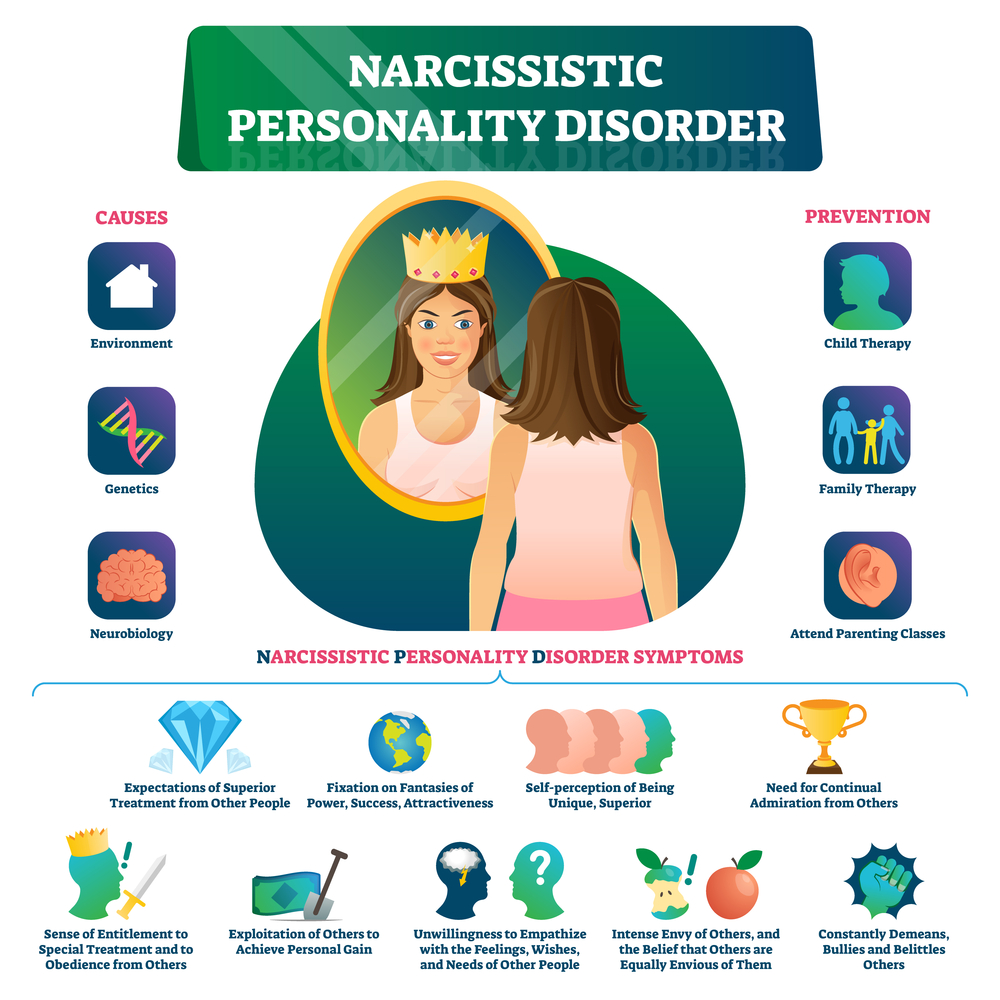 Identifying Narcissistic Behavior
Identifying Narcissistic Behavior
Narcissistic Personality Disorder (NPD) is a long-term pattern of abnormal behavior characterized by exaggerated feelings of self-importance, a deep need for admiration, and a lack of empathy for others. But how do you spot these traits? Let's break it down:
- Grandiosity: A narcissist often appears to have an inflated sense of self-importance, believing they are superior to others.
- Fantasy Preoccupation: They may fantasize about power, success, or attractiveness.
- Manipulation: Your interactions might feel engineered towards bolstering their ego or status.
A key factor in identifying someone with NPD is their tendency to manipulate. Spotting manipulation can be tricky, but here are some signs:
- Lying: It's common to catch them bending the truth to their advantage.
- Exploitation: They use others without consideration for their feelings.
Entitlement and superiority are closely related; narcissistic individuals often expect special treatment and express disdain for those they consider inferior.
Narcissists can be quite charming and upbeat, but here's the catch: their lack of empathy often betrays them. They struggle to recognize the needs and feelings of others, and their relationships are typically one-sided.
Lastly, the need for excessive admiration is like a thirst for them. They constantly seek confirmation of their greatness.
Remember, while these traits might be informative, it's important not to jump to conclusions or label someone without proper assessment by a qualified professional.
Key takeaway: Awareness of these behaviors can help you understand and navigate interactions with those showing narcissistic traits.
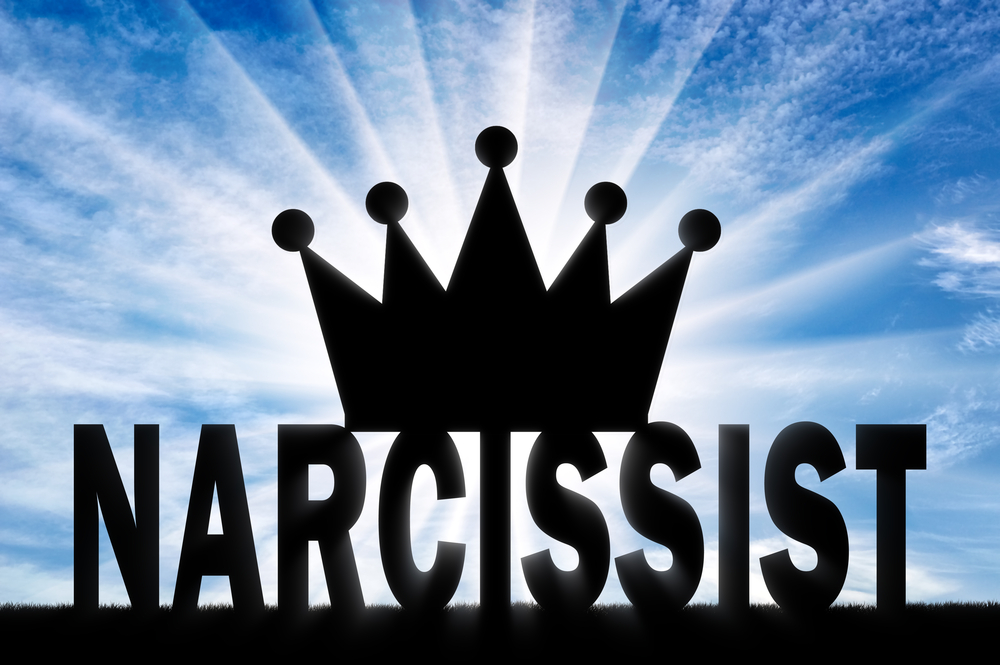 Setting Boundaries for Self-Protection
Setting Boundaries for Self-Protection
When you're involved with a narcissist, establishing boundaries is crucial for your mental and emotional well-being. These individuals often thrive on violating boundaries, so it's up to you to set firm limits.
Identify Your Limits:
Start by knowing what you can tolerate and accept. What are your deal-breakers? Be clear about your values and beliefs.
- Physical Space: Require personal space and privacy.
- Emotional Borders: Demand respect for your feelings and thoughts.
- Communication: Set rules for respectful communication, banishing yelling or name-calling.
Communicate Clearly:
Convey your boundaries to the narcissist. Remember, they may not acknowledge them, but you must be clear on where the line is drawn.
- Use "I" statements: "I feel disrespected when..."
- Avoid Jargon: Speak plainly to prevent misunderstandings.
Stand Your Ground:
Narcissists might use manipulation or guilt trips. Stay firm and don't waver.
- Anticipate Resistance: They may try to blur lines with lying or charm.
- Be Consistent: Enforce your boundaries every time.
Enforce Consequences:
If your limits are crossed, follow through with consequences.
- Follow-up: If you set an ultimatum, you must be ready to act on it.
- Avoid Empty Threats: Only set boundaries you're willing to uphold.
Self-Care:
Put your well-being first. If you feel threatened or abused, seek support. Remember:
- It's Not Selfish: You're protecting your health and happiness.
- You Deserve Respect: No one should undermine your feelings or autonomy.
Key Takeaway: Setting boundaries with a narcissist is about safeguarding your sense of self. It's a form of self-respect and a step towards a healthier emotional environment. Stay true to yourself, and don't hesitate to seek support when needed.
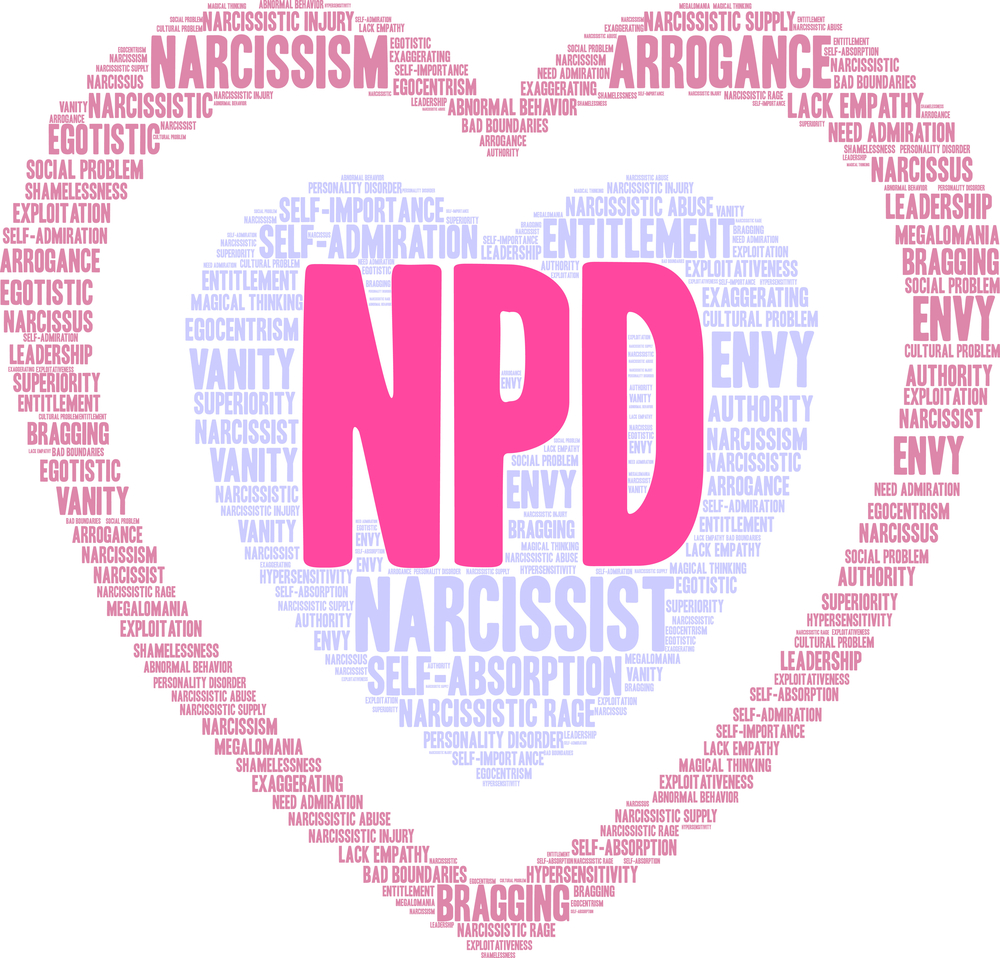
Nurturing Your Self-Esteem
In a relationship with a narcissist, it's vital to focus on your self-esteem. When admiration turns to criticism and empathy fades into grandiose displays of superiority, you might feel lost in the whirlwind of narcissistic abuse. Rebuilding self-love is like tending to a garden—it needs patience and care. Here are steps to help you start nurturing your self-worth:
- Acknowledge Your Feelings: It's okay to feel shame or envy when dealing with a narcissist's actions. Recognize these emotions, but don't let them define you.
- Set Boundaries: Love yourself enough to set limits. You're not responsible for a narcissist's sense of entitlement or outbursts of rage.
- Embrace Your Interests: Reconnect with what brings you joy, away from the need for validation. Let your passions remind you of your uniqueness.
- Practice Self-Compassion: Replace criticism with positive self-talk. Use affirmations to bolster your sense of self.
- Seek Support: Find a community that offers attention and respect without the strings of a narcissist's false self.
- Self-Care Rituals: Invest in activities that enhance your well-being, like exercise or meditation, and tackle aging with a healthy mindset.
Often in narcissistic relationships, you may feel like you're on an emotional seesaw. A narcissist's jealousy can undermine your confidence, but remember, you're not the sum of your insecurities. It's not about becoming someone you're not but rediscovering who you've always been. Your self-esteem is your emotional backbone—keep it strong.
Key Takeaway: Love yourself first. Your self-esteem is precious; guard, nurture, and watch it grow.
Learn More: Building Self-Esteem After Narcissistic Abuse
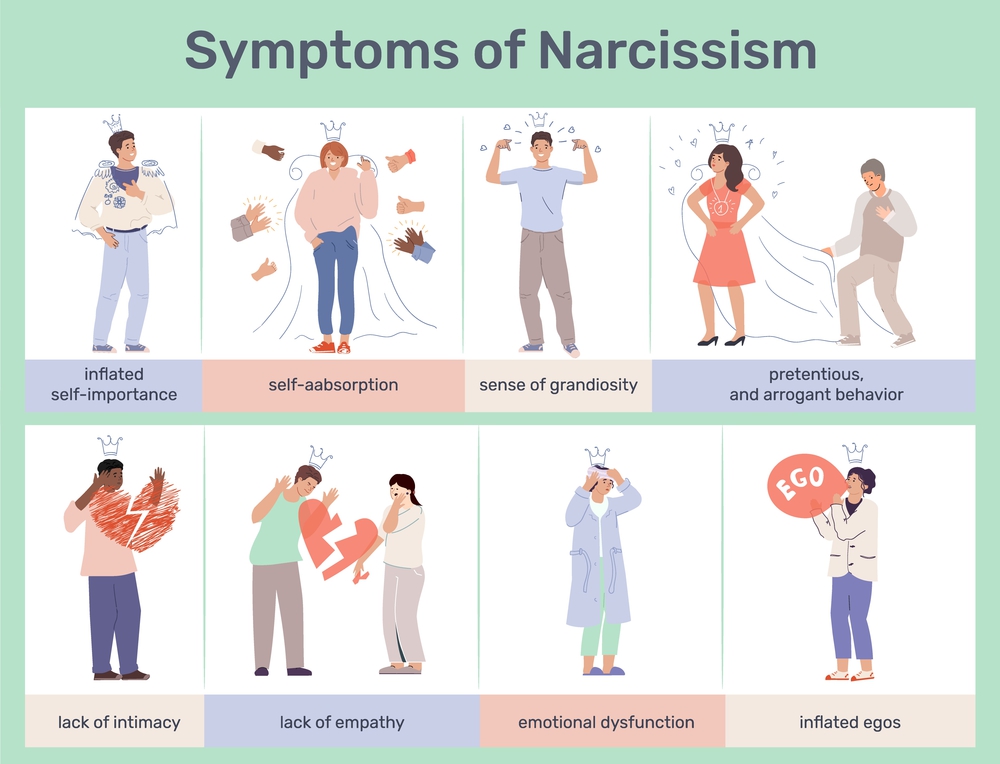 Effective Communication Strategies
Effective Communication Strategies
When interacting with a narcissistic partner, the way you communicate is crucial for maintaining your sanity and the relationship. Education about narcissism is the foundation. Learn the nuances of the disorder to understand your partner’s behavior better.
Set Clear Boundaries: Defining what is acceptable to you is essential.
- Be firm yet polite when establishing limits.
- If boundaries are crossed, calmly express the consequences.
Maintain Emotional Distance: While empathy is beautiful, protecting your feelings is vital.
- Offer attention, but guard your emotional connection.
- Don’t get too emotionally invested in manipulative tactics.
Foster an Environment of Respect: Mutual respect is key in any relationship.
- Approach conversations with a calm demeanor.
- Highlight the importance of respecting each other’s views and emotions.
Bullet points are beneficial when you need to communicate effectively:
- Avoid Criticism: Criticism may trigger defensive behavior. Instead, focus on how their actions make you feel.
- Use 'I' Statements: This helps convey your perspective without direct accusation. Example: "I feel ignored when..."
- Seek Professional Help: A therapist can assist both partners in navigating the complex dynamics.
If things escalate beyond your control, remember it’s not a failure to seek external support or reconsider the relationship’s future.
Key takeaway: Keep your cool and stand your ground with kindness. A loving relationship involves both give and take without sacrificing your self-esteem.
Seeking Support from Trusted Individuals
When you're in a relationship with a narcissist, it's crucial to have a support system in place. Building a network of trusted individuals who understand your situation can provide emotional grounding and practical advice. Here are a few steps you can take:
- Find a therapist specializing in narcissistic abuse. They can offer professional guidance and help you work through your emotions in a safe space.
- Lean on friends or family members who show empathy and who you can trust to keep your confessions confidential.
If you're hesitant to open up, remember:
- It's okay to be selective about whom you trust. Not everyone needs to know the details of your relationship.
- When you decide to share, talk about your feelings without expectation; your goal is to be heard and supported, not necessarily to seek solutions.
Involving others can provide fresh perspectives:
- Group therapy or support groups for those in similar relationships can be invaluable. The shared experiences can foster a deep emotional connection and a sense of belonging.
Remember, trust takes time:
- Start with small disclosures to build trust gradually. As confidence in the relationship strengthens, you can share more.
Seeking professional help, such as psychotherapy, can be particularly important in dealing with the long-term effects of being in a relationship with a narcissist. A therapist can help you better understand the dynamics of the relationship and develop strategies to regain your sense of self.
Key Takeaway: Reach out and connect with people you feel comfortable with. Whether it's a professional therapist, a close friend, or a support group, their perspective and support can be a lifeline as you navigate your relationship with a narcissist.
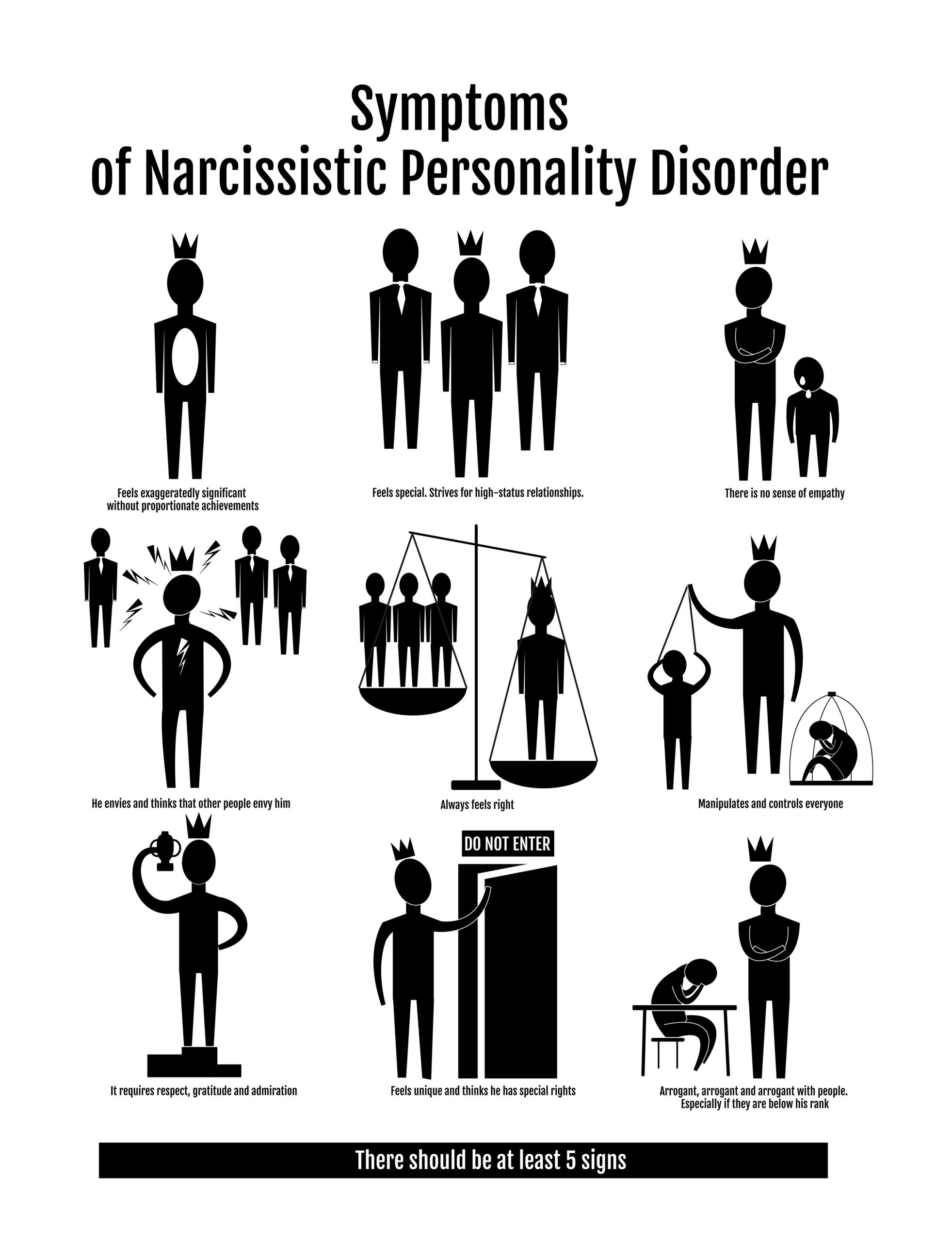 Rebuilding Your Life After Narcissistic Abuse
Rebuilding Your Life After Narcissistic Abuse
When you leave a relationship with a narcissistic partner, it can feel like you're starting over. The road to recovery is not a straight line; it’s filled with ups and downs. Here’s how you can rebuild your life:
Focus on Self-Esteem
- Take It Slow: Remember that healing is not instantaneous.
- Affirmations: Regularly remind yourself of your worth.
Therapy and Support Groups
- Connect with professionals who understand narcissistic abuse.
- Lean on support groups to share experiences and find common ground.
Rediscover Empathy
- Spend time with loved ones who value you for who you are.
- Engage in activities that promote kindness and connection.
In rebuilding trust, start small. Place your confidence in someone close, someone who has been consistently trustworthy. Trusting again takes time, so be patient with yourself.
Embrace the power to create boundaries. Say "no" when something doesn't feel right, and prioritize your needs. Recognizing that you possess this power is vital in preventing future abuse.
As for starting over post-divorce, it’s crucial to map out your personal and professional goals. Focus on building confidence by achieving small objectives, leading to more considerable successes.
Key Takeaway: Every step you take is a piece of the puzzle towards recovery. Embrace the journey, and don’t hesitate to ask for help. There's strength in reaching out; each day, you'll find yourself stronger and more independent.
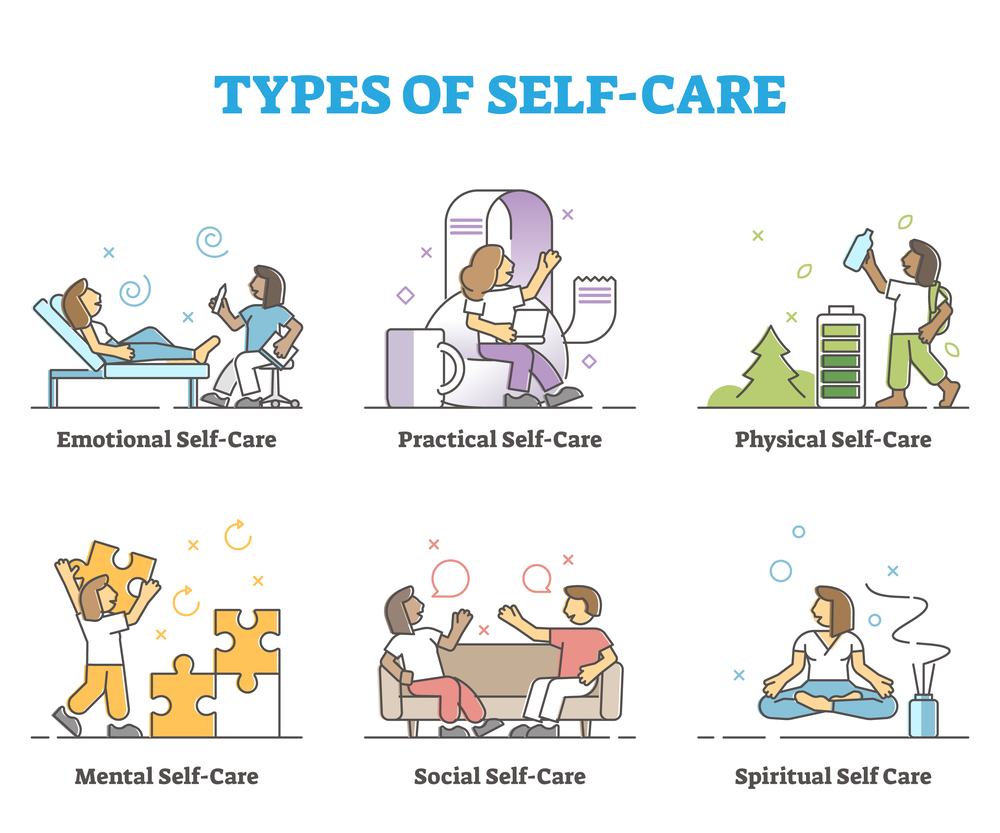 Practicing Self-Care and Wellness
Practicing Self-Care and Wellness
In a relationship with a narcissist, it's vital to prioritize your emotional health. Often, this means embracing self-care and wellness as a cornerstone for healing. You might wonder where to begin—don't worry; small, consistent steps can lead to substantial positive changes over time.
- Therapy: Seeking professional help can be transformative. A therapist understands the complexities of narcissistic abuse and can guide you towards recovering your self-esteem.
- Daily Rituals: Establishing routines, like morning meditations or evening walks, can foster inner peace and emotional connection with yourself.
- Empathy for Self: Show yourself the kindness you would offer a good friend. Recognize your resilience and the power you have to heal.
- Boundaries: Saying "no" to demands on your time or energy respects your needs and reinforces that your well-being is paramount.
Maintaining your wellness involves checking in with yourself regularly:
- Are you feeling respected in your interactions?
- Is your emotional health being prioritized?
If not, it may be time to reassess and adjust your approach to self-care.
Remember to celebrate the small victories. No matter how slight, each step forward is part of a journey toward a healthier you. Engage in activities that boost your morale and remind you of life's joys. Perhaps it's savoring a favorite book or indulging in a creative hobby—choose what feels restorative for you.
Key Takeaway: Prioritize your well-being by seeking therapy, establishing daily self-care rituals, empathizing with yourself, and setting firm boundaries. Your emotional health is worth it.
Frequently Asked Questions
Navigating a relationship with a narcissist can be tricky and often leaves one with numerous questions. This section aims to answer some pressing queries, offering insights and practical advice.
What are the common behaviors displayed by narcissists at the conclusion of a relationship?
At the end of a relationship, narcissists may exhibit behaviors like refusal to accept responsibility, projecting blame onto others, and displaying a mixture of charm and aggression to regain control or to undo their image damage. They might also attempt to garner sympathy through self-victimization.
Key takeaway: Be prepared for complex, often contradictory behaviors as the relationship ends.
In what ways might a narcissist typically treat their female partner?
Narcissists might treat their female partners with a pattern of idealization followed by devaluation. Initially, you may be placed on a pedestal, only to be criticized or compared unfairly later. Your achievements might be undermined, and there could be attempts to manipulate you emotionally.
Key takeaway: Recognize the cycle of idealization and devaluation as a red flag.
What patterns are typically observed in relationships involving narcissistic males?
Narcissistic males often exhibit a need for admiration and a lack of empathy. You might notice a trend of them taking credit for your successes, dominating conversations, and disrespecting your boundaries. Exploitative relationships and inconsistency in their words and actions are common patterns.
Key takeaway: Look out for persistent self-centered behavior and disregard for your feelings.
How can one identify and cope with a one-sided relationship with a narcissistic individual?
Identifying a one-sided relationship involves noticing a consistent lack of reciprocity, excessive emotional labor, and your needs being repeatedly sidelined. Coping can include setting firm boundaries, seeking support from friends or professionals, and prioritizing self-care.
Key takeaway: Trust your feelings if you sense imbalance, and don't hesitate to seek external support.
What are some effective strategies for healing after ending a relationship with a narcissist?
Healing involves multiple strategies:
- Embracing a no-contact rule to prevent further manipulation.
- Engaging in self-care and possibly therapy to rebuild self-esteem.
- Connecting with support groups to share experiences and gain perspective.
Key takeaway: Focus on rebuilding your inner strength and support network.
Is it possible to manage and improve a romantic relationship with someone who has narcissistic tendencies?
While challenging, it is possible to manage such a relationship with clear boundaries, open communication, and sometimes professional help. Assessing your well-being regularly and recognizing when the relationship may no longer benefit you is essential.
Key takeaway: Consistent boundary-setting and self-assessment are crucial in managing a relationship with a narcissist.

